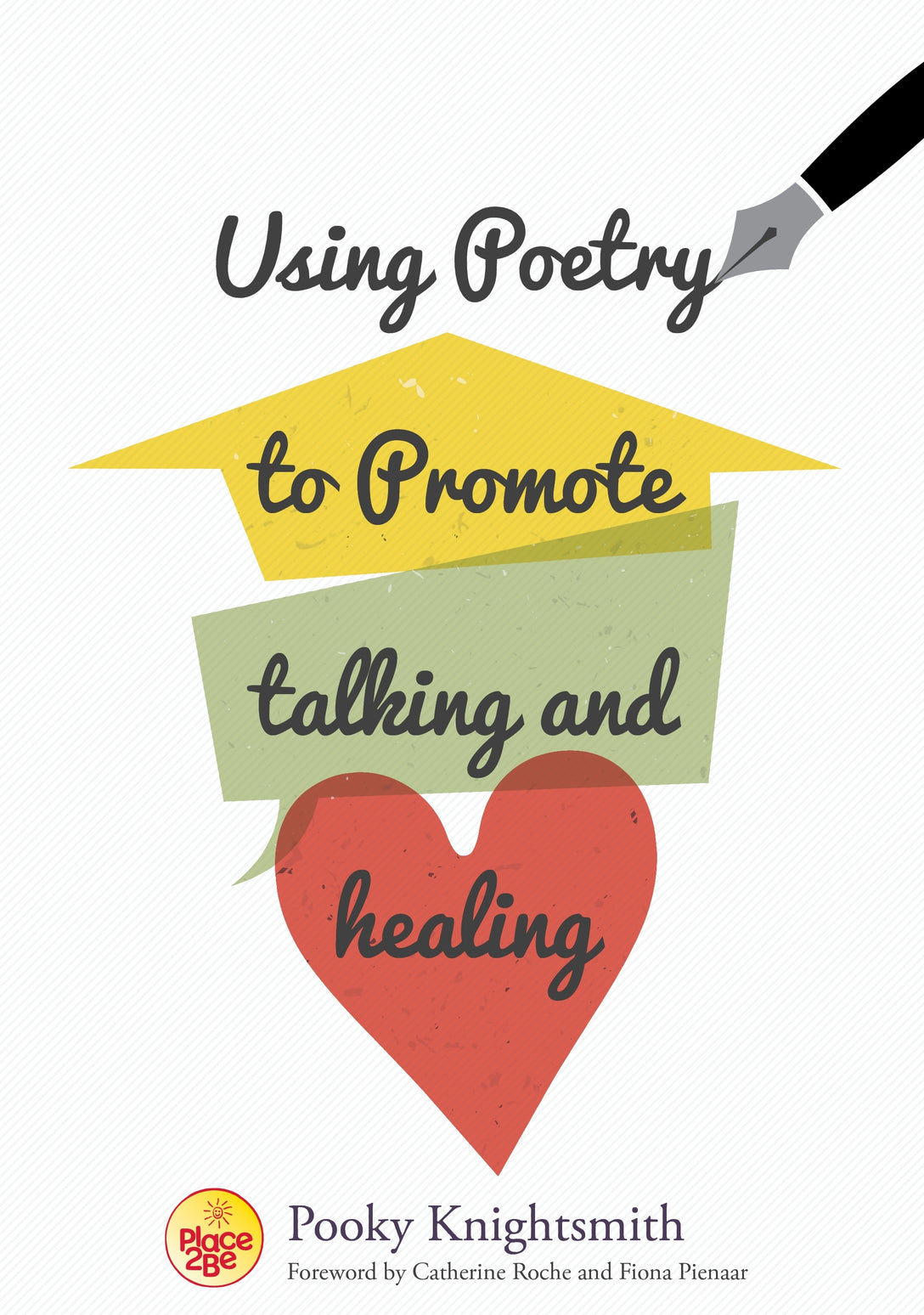
Press Reviews
June Alexander, mental health advocate and author of Using Writing as a Therapy for Eating Disorders
Poetry's many attributes include the capacity to absorb secrets and express pain too deep to talk about. Its ability to be a creative and healing tool for poets of all life stages and ages is as limitless as your imagination. Pooky's timely, easy-to-read and user-friendly book explores how the writing and reading of poetry can be a valuable resource for communicating with the self and others.
Nick Luxmoore, school counsellor and author of Horny and Hormonal, Feeling Like Crap and Working with Anger and Young People
At last! A book that values and uses poetry as a therapeutic tool, as a way of helping us make sense of ourselves. Unlike so many stereotypes about poetry, this book is practical, unpretentious and heartfelt, with applications for helping people - young and old - way beyond mental health settings. Pooky Knightsmith has opened a very creative box for us to use.
Jonathan B. Singer, Ph.D. Associate Professor, Loyola University, Chicago School of Social Work and coauthor of Suicide in Schools: A Practitioner's Guide to Multi-level Prevention, Assessment, Intervention, and Postvention
If you are "poetry-impaired" like me, Dr. Knightsmith's book is a revelation. Poetry is a language many of my depressed and suicidal adolescent clients speak fluently, but one I have never had much confidence using in my therapy. This beautiful, honest, and instructive book has given me another tool to use in my work.
Dick Moore, Retired Head Teacher and Trainer for the Charlie Waller Memorial Trust
Whoever you are, whatever you do, here is a profoundly personal and moving insight into the world of emotional and mental ill-health. But this book is much more than that. Whilst many will identify with the dark depths of emotion within her poems, Dr Knightsmith's greatest achievement is in offering teachers, carers and friends not only a valuable resource to enable empathy, but also a starting point to aid and encourage recovery.
Jessica Streeting MA, School Nurse and Advisor to Public Health England (www.schoolhealthstreet.co.uk)
This is a remarkable and original book. Pooky's poems, born out of her own experience and that of those she has worked with, offer us real insight into the complexities of living with and recovering from mental ill-health. The careful structure of the book encourages exploration of relevant themes and is a welcome addition to supporting recovery, when used within a therapeutic setting.
Dr Helen Street, applied social psychologist and educator, The Positive Schools Initiative
In this informative and powerful text, Pooky shows us how we can find our voice within the poetic words of others and in the creation of our own poetry. Poetry offers a medium of self-expression that captures so much more than words and rationale. As such, poetry offers an ideal place to find empathy, meaning and solace. To believe that "someone else understands, and someone else is listening."
Jane Bunclark, Head of Academic Drama, West Buckland School, Devon
This is a remarkable resource not only for therapists but also for teachers of English, creative writing and drama. The prompts for discussion are very varied and raise issues of technique and the impact of a writer's choices as well as subject matter. The sections defining poetic forms and providing ways in to writing are brilliant for the classroom, and then there is the astonishing anthology ...
Jenny Barksfield, Deputy CEO and Senior Subject Specialist, PSHE Association
This is an incredibly impressive and valuable book. Given its powerful and personal insight, it will in my view be perfect for use with professional therapists working one-to-one with clients. While the book is rightly intended for use in a one-to-one setting and not in the classroom, I have learnt much from reading it which will influence my work with the PSHE Association.
Sofia Correia Alegria
SENcology blogUsing Poetry to Promote Talking and Healing is a humble guide for both professionals of mental health and the public in general. By providing a heart-warming insight of a very personal experience, Pooky Knightsmith allows the reader to identify himself with the ordinary struggles of human existence in an effortless manner. An undeniable prolific written testimony of ascendancy and bravery, this book is a major trigger to personal change. The reader - and artist-to-be of its own piece of life story - is invited to set himself free of inner criticism and follow its instincts. The book offers an unexpected myriad of creative tools able to facilitate the expression of feelings. A specially worthwhile reading for any mental health professional eager to introduce creative possibilities in the therapeutic context. These tools might well work as the preface of a joint story written between therapist and client.
